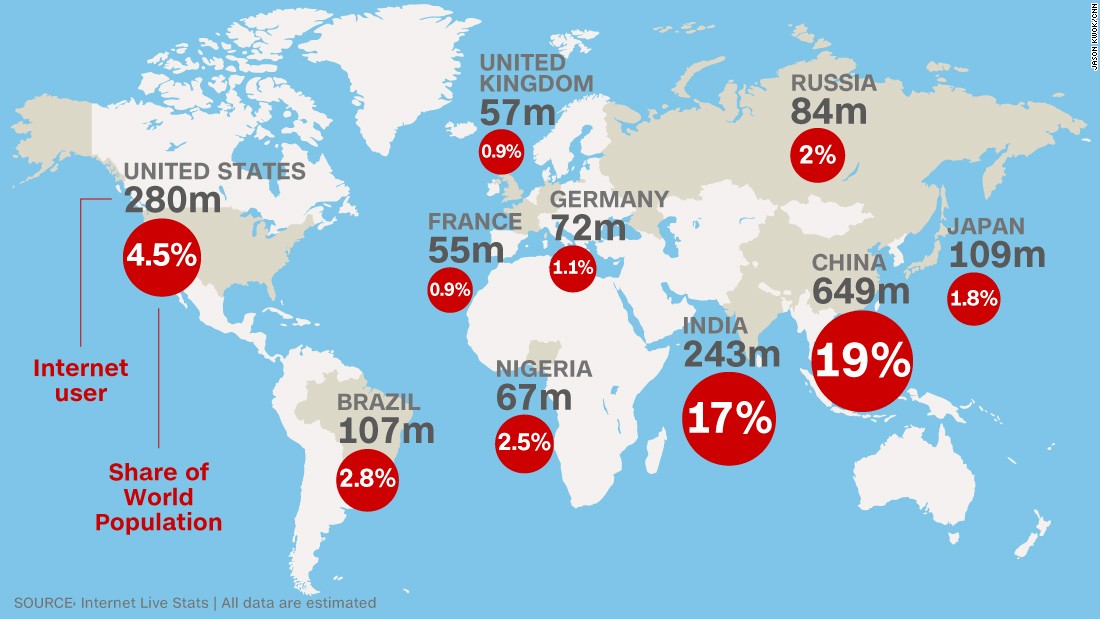

China's online users more than double entire U.S. population
Wed February 4, 2015
(CNN)The world's most populous country also has the largest -- and fastest growing -- online population.
China has now surpassed 649 million users, outnumbering the entire U.S. population two to one, according to official figures released Tuesday.
The China Internet Network Information Center's (CNNIC) 35th "China Internet Development Statistics Report," documents online usage in the country for 2014, and identified the staggering number of connected Chinese citizens.
The growth of mobile internet is largely credited for the increase, with 80% of users -- 557 million -- using smartphones and tablets to connect.
However, the rate of growth is slowing somewhat, the report said, with 31 million new users added in 2014 compared to 54 million in 2013.
The rate of growth in mobile users was significantly higher than the overall increase, with 57 million new mobile users logging on last year.
Despite the huge number and rapid growth of connectivity, the overall population size means that still a majority (52.1%) of Chinese have no access to the internet.
Rural users are heavily outnumbered by their urban counterparts.
After China, the U.S. has the second largest number of Internet users, with 280 million, followed by India (243 million) and Japan (109 million), according to data compiled by the World Bank and United Nations amongst others.

'Great Firewall'
Those who are connected largely have a different user experience from internet users in the West, with sites like Twitter, Facebook and Google blocked or severely restricted.
Thousands of terms deemed sensitive by the government -- such as "end one-party dictatorship" -- are also banned.
And China's "Great Firewall" is getting harder to break through.
Prior to the latest crackdown, many Chinese internet users employed VPNs -- virtual private networks -- to get around the draconian censorship laws. But now these VPNs are also being shut down.
Without unfettered access, however, some are concerned that China is strangling its nascent "knowledge economy."
While the huge number of connected users -- particularly those on smart devices -- is a boon to companies like Apple, which credits a large part of itsphenomenal quarterly earnings to its huge Chinese fanbase, there is a cost.
Strict, new Chinese government rules will subject foreign companies to tailor their products for use within China. By insisting that overseas companies give up source code and back-end data on their China-bound products, could are put at a huge competitive disadvantage.
No comments:
Post a Comment
Comments always welcome!